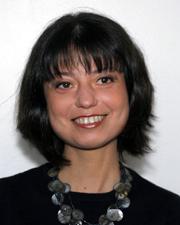Polish
Why Study Polish?
Polish is spoken by almost 40 million people in Poland and around the world, including the US. By some counts, the city of Chicago has the second largest Polish population in the world.
Following the Solidarity movement of the 1970s and 80s and the important historical contributions of such figures as Lech Wałęsa and John Paul II, Poland in 2013 has a vibrant economy and is experiencing rapid political, social and demographic changes. Today, Poland is a key member state of the European Union and NATO. The country has a flourishing cultural and arts scene.
Poland has a rich literary tradition, tracing its beginning to the Renaissance and the poetry of Jan Kochanowski. In the twentieth century four Polish writers Henryk Sienkiewicz, Czesław Miłosz, Wisława Szymborska, and Władysław Stanisław Reymont have won the Nobel Prize for Literature. The culture has a strong music tradition, including Fryderyk Chopin in the 19th century and Krzysztof Penderecki in the 20th. Mikołaj Kopernik (aka Copernicus) and Maria Skłodowska Curie are among those Poles who have also made important contributions to world knowledge in the natural sciences.
Why Study Polish at KU?
The University of Kansas has a more than thirty-year tradition of teaching Polish language and literature. Polish language and culture courses at KU are designed to accommodate students with a wide range of interests, including students with Polish heritage, students interested in Polish and East European history, literature, film. The Department of Slavic, German, and Eurasian Studies offers courses of elementary, intermediate and advanced Polish. The beginning of the sequence is offered every other year. Students who already have advanced knowledge of Polish can take independent study courses in Polish Language and Literature after obtaining the consent of the instructor.
KU encourages students to study abroad either in the summer or during the academic year.
